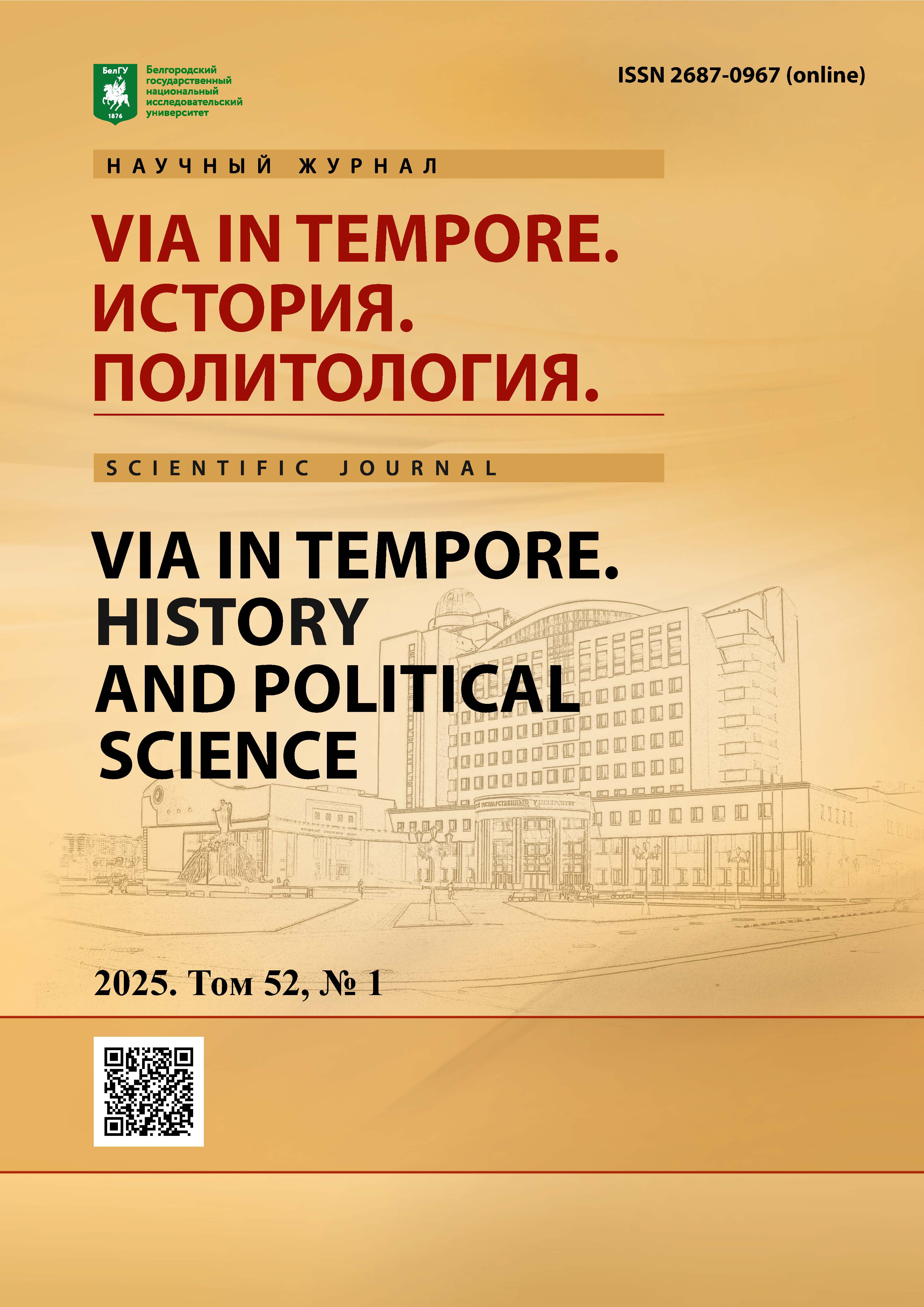Inter-Princely Vicissitudes of Rus and the Hungarians: Problems and Approaches (Regarding the Book: M.K. Yurasov “Hungary and Russian Principalities in the 12th Century”. St. Petersburg: Petroglyph, Centerfor Humanitarian Initiatives, 2019. 496 p.)
DOI:
https://doi.org/10.52575/2687-0967-2025-52-1-98-103Keywords:
foreign policy of Rus, Russian-Hungarian relations, Rurikovich, Arpad, 12th century, Boris Kalmanovich, Yaroslav Svyatopolkovich, Yaroslav OsmomyslAbstract
The foreign policy of Ancient Rus has rarely attracted the attention of domestic researchers, both of the Soviet and Post-Soviet eras. After the publication of V.T. Pashuto's monograph "Foreign Policy of Ancient Rus'", some of his students paid attention to this topic, but M.K. Yurasov, scientist of the Institute of Russian History of the Russian Academy of Sciences, approached its Hungarian direction with the greatest care and scrupulousness. The article examines, first of all, his scientific approaches and methodology, which allow questioning and refuting the approaches and concepts of Hungarian scientists who are specialists in this problem. Using Russian-language sources and archaeological data, M.K. Yurasov clearly showed how in the middle of the 12th century there was a gradual devaluation of the foreign policy goals that the Hungarian kings set for themselves regarding Rus. He also pays attention to the history of the ancestors of modern Subcarpathian Rusyns. In his opinion (which is not shared by his Hungarian colleagues), the Eastern Slavs lived on the territory of modern Hungary even before the Magyars themselves settled there. M.K. Yurasov's monograph is currently the most detailed study of Russian-Hungarian relations in the 12th century.
Downloads
References
Список литературы
Морозов С.В. 2007. Из довоенного досье. Международная жизнь 1–2: 194–213.
Морозов С.В. 2017. «Варшавская мелодия» для Москвы и Праги. Документы из личного архива И.В. Сталина, Службы внешней разведки Российской Федерации, II Отдела Главного штаба Войска Польского и др. (1933–1939). Москва, Международные отношения. 592 с.
Морозов С.В. 2021. Чехословакия, Польша, Венгрия и Подкарпатская Русь в контексте предыстории и последствий Мюнхенской конференции 1938 г. Русин 1(63): 173–189. URL: http://journals.tsu.ru/rusin/&journal_page=archive&id=2098 DOI: 10.17223/18572685/63/9
Морозов С.В. 2024. К вопросу о движущих силах создания в 1925 г. «правового механизма „подталкивания“ Германии на Восток». Экономические стратегии 5(197): 122–129. doi: https://doi.org/10.33917/es-5.197.2024.122-129
Пашуто В.Т. 1968. Внешняя политика Древней Руси. Москва, Наука. 472 с.
Юрасов М.К. 2019. Венгрия и русские княжества в XII в. Санкт-Петербург, Петроглиф, Центр гуманитарных инициатив. 496 с.
Font M. 2005. Árpád-házi királyok és Rurikida fejedelmek. Szeged, Szegedi Középkorász Műhely. 330 p.
Font M. 2021. The Kings of the House of Árpád and the Rurikid Princes: Cooperation and Conflict in Medieval Hungary and Kievan Rus’. Budapest, Research Centre for the Humanities. 354 p.
References
Morozov S.V. 2007. Iz dovoennogo dos`e [From the Pre-War Dossier]. Mezhdunarodnaya zhizn` [International Affairs]. 1–2: 194–213.
Morozov S.V. 2017. «Varshavskaya melodiya» dlya Moskvy` i Pragi. Dokumenty` iz lichnogo arkhiva J.V. Stalina, Sluzhby` vneshnej razvedki Rossijskoj Federacii, II Otdela Glavnogo shtaba Vojska Pol`skogo i dr. (1933–1939) [“Warsaw Melody” for Moscow and Prague. Documents from the Personal Archive of I.V. Stalin, the Foreign Intelligence Service of the Russian Federation, the II Department of the General Staff of the Polish Army, etc. (1933–1939)]. Moskva: Mezhdunarodny`e otnosheniya. 592 p.
Morozov S.V. 2021. Chekhoslovakiya, Pol`sha, Vengriya i Podkarpatskaya Rus` v kontekste predy`storii i posledstvij Myunhenskoj konferencii 1938 g. [Czechoslovakia, Poland, Hungary, and Subcarpathian Rus’ in the Context of the Prehistory and Consequences of the 1938 Munich Conference]. Rusin [Rusin]. 1(63): 173–189. URL: http://journals.tsu.ru/rusin/&journal_page=archive&id=2098 doi: 10.17223/18572685/63/9
Morozov S.V. 2024. K voprosu o dvizhushchikh silakh sozdaniya v 1925 g. «pravovogo mekhanizma „podtalkivaniya“ Germanii na Vostok» [On the Issue of the Driving Forces behind the Creation in 1925 of the "Legal Mechanism for 'Pushing' Germany to the East"]. Ekonomicheskie strategii [Economic Strategies]. 5(197): 122–129. doi: https://doi.org/10.33917/es-5.197.2024.122-129
Pashuto V.T. 1968. Vneshnyaya politika Drevnej Rusi [Foreign Policy of Ancient Rus]. Moskva, Nauka. 472 p.
Yurasov M.K. 2019. Vengriya i russkie knyazhestva v XII v. [Hungary and Russian Principalities in the 12th Century]. Sankt-Peterburg, Petroglif, Centr gumanitarny`x iniciativ. 496 p.
Font M. 2005. Árpád-házi királyok és Rurikida fejedelmek. Szeged, Szegedi Középkorász Műhely. 330 p.
Font M. 2021. The Kings of the House of Árpád and the Rurikid Princes: Cooperation and Conflict in Medieval Hungary and Kievan Rus’. Budapest, Research Centre for the Humanities. 354 p.
Abstract views: 74
Share
Published
How to Cite
Issue
Section
Copyright (c) 2025 Via in tempore. History and political science

This work is licensed under a Creative Commons Attribution 4.0 International License.


